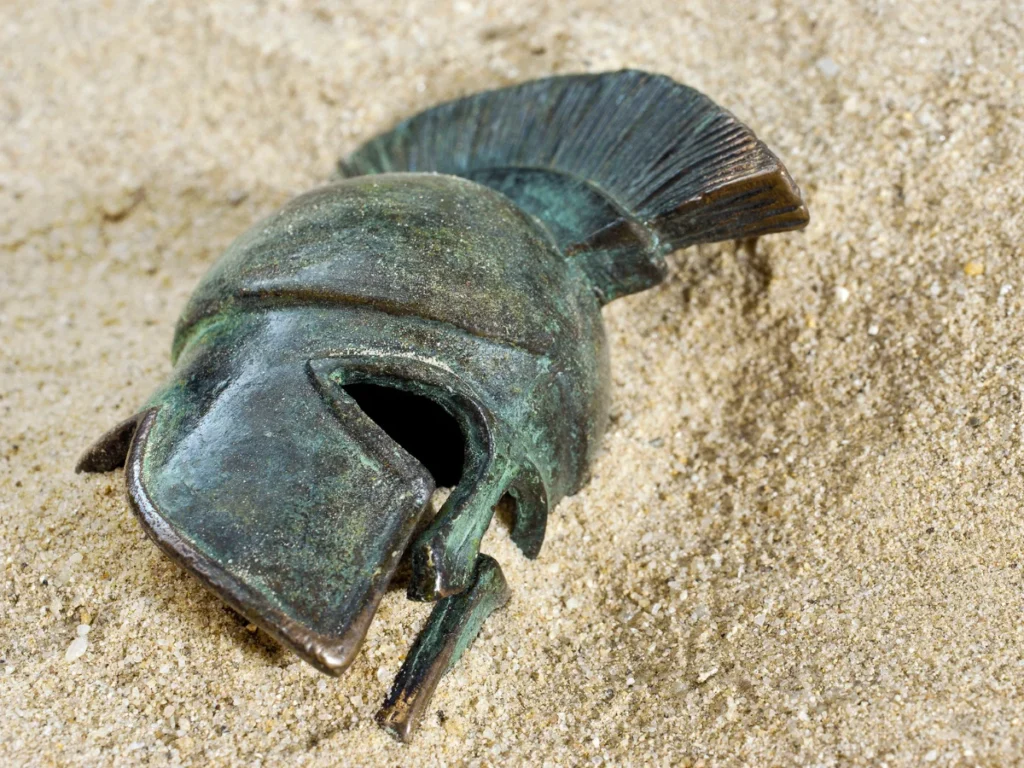King Mithridates VI of Pontus
King Mithridates VI of Pontus, an intriguing figure in ancient Greece, ascended to power at a young age and resisted Roman expansion with charismatic leadership. Fluent in multiple languages, he united diverse Anatolian groups against Rome’s dominance. His practice of Mithridatism, ingesting poisons to build immunity, added to his enigmatic character. Ultimately, his resistance was quelled, but his legacy endures as a symbol of defiance in the complex tapestry of ancient Greek history.

The King Mithridates VI of Pontus
Early Life and Ascension
Mithridates VI of Pontus experienced a tumultuous childhood marked by political upheaval. Following his father’s assassination, he ascended to the Pontic throne at the age of eleven. Raised in a diverse environment, he became fluent in multiple languages. This included Greek and Persian. This early exposure to intrigue and linguistic diversity shaped his later life and reign as an enigmatic and formidable ruler in ancient Greece.
The Pontic Wars and Expansion
Mithridates’ reign was marked by a series of conflicts known as the Mithridatic Wars (First, Second and Third Mithridatic War), which pitted him against the Roman Republic. He aimed to expand his influence in Anatolia and the Black Sea region. This move put him in direct confrontation with Rome’s expansionist ambitions.
Resistance Against Roman Hegemony
Mithridates VI earned fame through his spirited opposition to the Roman Republic. He didn’t just resist; he led. He brought together diverse ethnicities and cultures in Anatolia, uniting them for a shared purpose, proving his leadership was more than mere charisma; it was magnetic. His rebellion reached a climax during the infamous Asiatic Vespers, a brutal event that saw the slaughter of thousands of Romans and Italians, a stark testament to his defiance.
The Cult of Mithridatism
Aside from his military and political endeavors, Mithridates VI is known for the concept of Mithridatism, a practice wherein he consumed small amounts of poisons to build immunity. This precautionary measure was a testament to his relentless pursuit of personal survival.
Downfall and Legacy
After a series of conflicts with the Roman Republic known as the Mithridatic Wars, He faced a downfall. Following his defeat and exile to the Crimea, he met his end through suicide in 63 BC. Despite his ultimate defeat, Mithridates’ legacy endures as a symbol of defiance and charismatic leadership. His complex character and resistance against a formidable adversary continue to captivate historians and enthusiasts, leaving an indelible mark on the annals of ancient Greek history.
Conclusion
King Mithridates VI of Pontus, with his multilingual background, military prowess, and resistance against the Roman Republic, left an indelible mark on the ancient world. His life and reign encapsulate the tumultuous dynamics of power and ambition in the Hellenistic era, making him a captivating and enigmatic figure in the annals of history.
The Pontic Kingdom
The Pontic Kingdom was a significant region in ancient Greece. It thrived along the southern Black Sea coast. It was inhabited by the Pontic people, who held a distinct cultural identity and language. Following the conquests of Alexander the Great, local rulers governed the region with a degree of autonomy. The Pontic people, shaped by a fusion of Anatolian and Hellenistic influences, contributed to the diverse fabric of ancient Greek culture. Renowned for its fertile lands and strategic location, the Pontic Kingdom facilitated trade and cultural exchange. It left an enduring legacy that testifies to the rich tapestry of ancient Greece.
